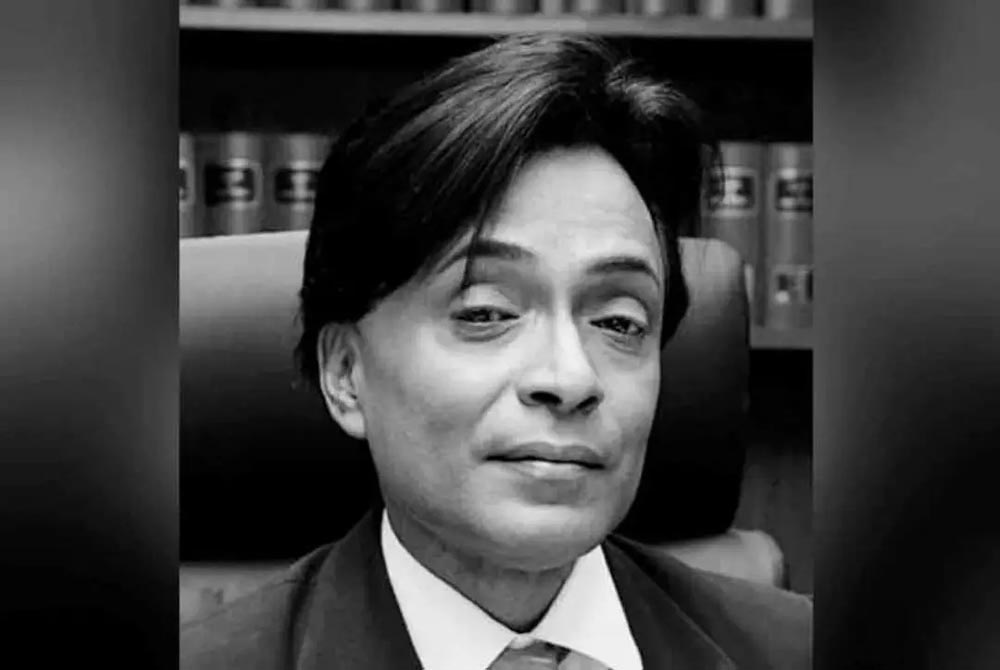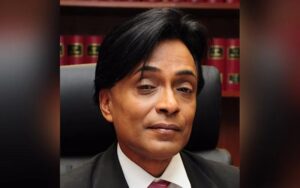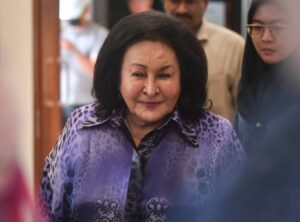By Hafiz Yatim | The Edge Malaysia

The lawyers representing the three men who are appealing against their guilty conviction of murdering the late Deputy Public Prosecutor Datuk Anthony Kevin Morais have implored the judges of the case to set aside their friendship with Morais in deciding on the men’s appeal.
The lawyers, Datuk N. Sivananthan, Amer Hamzah Arshad, and M. Manoharan, said they, like the judges of the appellate court presiding over the case, also knew Morais well and had regarded him as one of the better prosecutors but said the court has to set aside their personal feelings in the case.
Datuk Hadhariah Syed Ismail, who led the three-member COA bench, acknowledged the lawyer’s recognition of Morais’ prosecutorial skills. The other two on the bench were Datuk Ahmad Zaidi Ibrahim and Datuk Azmi Ariffin.
The three lawyers are separately representing the three men who had been found guilty by the Kuala Lumpur High Court of murdering Morais and were sentenced to death in July 2020. Sivananthan is the counsel for Col (Rtd) Dr R. Kunasegaran, 59, while Amer Hamzah is representing S. Nimalan, 30; and Manoharan is the counsel for R. Dinishvaran, 31.
“This case involving the death of a sitting DPP is a first in the country, and is the rarest of the rare cases. If there is no evidence, then the court should not impose the death sentence on any of the appellants. The convicted should be acquitted and discharged.
“That (Morais’ death) does not mean my client (Dinishvaran) should be sentenced to death for the murder,” Manoharan said in appealing his client’s conviction.
Manoharan further said there was no clear evidence that linked his client to the murder as Dinishvaran was only found to have been in the Triton pickup truck that hit Morais’ car.
“There was testimony from Dinishvaran that he was sleeping in the Triton pickup truck when the crash with Kevin’s car happened. This does not prove there was common intention that he was involved in Kevin’s murder. If there was a common intention, he must have contributed to something,” he said.
Amer Hamzah, meanwhile, put forth that his client Nimalan was, at best, involved in kidnapping based on the evidence presented, as there was no evidence of him being directly involved in the murder.
At most, he said the case would be culpable homicide not amounting to murder because there was no clear evidence as to how Morais had died.
“The bench has to put aside its sentiment regarding the deceased, we must follow the law,” Amer Hamzah added.
Sivananthan, who also knew Morais, described the killing of the prosecutor as a tragedy, but remarked there was no evidence pointing to the involvement of his client, Kunasegaran, a pathologist, and that it was wrong for the prosecution to make him out as the mastermind in the case when he was nowhere at the crime scene, nor was he related to the discovery of the cemented barrel that contained Morais’ body.
“There is nothing against my client, nothing at all,” Sivananthan added.
The lawyers were wrapping up their appeal submissions for the case.
Kunasegaran, Dinishvaran, and Nimalan were among a total of six people who were convicted of murdering Morais. The other three were: money-lender S. Ravi Chandaran, 52; and A. K. Thinesh Kumar, 30, and M. Vishwanath, 30 — both unemployed.
They were convicted of murdering Morais along Jalan Dutamas Raya Sentul to No. 1 Jalan USJ1/6D, Subang Jaya, between 7am and 8pm on Sept 4, 2015. Morais’ body was found in a cemented drum that had been thrown into a swamp in Subang Jaya.
At the start of proceedings on Thursday, Hadhariah had asked the registrar to call up Morais’ case by his given name. During proceedings last week, the bench had continuously referred to the victim by his name, instead of the usual practice of referring to him as “the deceased”.
Conviction is safe and should be upheld, says prosecution
Earlier, the prosecution argued that the guilty conviction on the six people was a safe decision, and that the death sentence handed out to them should be upheld.
Deputy Public Prosecutor Datuk Mohd Dusuki Mokhtar, who is also the head of the Trial and Appellate Division in the Attorney General’s Chambers, said there is no need to establish who actually killed the person in common-intention murder cases.
“What the prosecution has to prove is some nexus (connection) to the offence, and that was the finding of the High Court judge. There is more than sufficient evidence to prove their actions in the murder act, especially Vishwanath,” Dukuki said.
The High Court judge, Dusuki said, had also noted that Kunasegaran held a grudge against Morais after having been prosecuted by him.
“Certainly, Kunasegaran was not seen at the crime scene or other places but the prosecution has successfully proven a nexus to the offence that implicated him,” he said.
Dusuki said the prosecution also need not prove that Kunasegaran was the mastermind, as shown in the Altantuya murder case involving Chief Inspector Azilah Hadri and also Corporal Sirul Azhar Umar.
“There is no hard and fast rule to the facts and evidence in this case. There is common intention by all the suspects who are the accused in this case.”
The DPP further said the prosecution can produce indirect evidence when dealing with common-intention cases.
“As in the (businesswoman) Sosilawati case, there is no evidence also as to who gave orders. In the end, the convictions against those accused were upheld,” he said, adding “there is no requirement under the law to fulfil the requirement on who was the mastermind”.
He also said that while the defence lawyers had questioned the motive of five of the accused, a motive does not need to be proven, citing as reference the Federal Court’s decision in the Altantuya murder case.
“It is only sufficient to prove the evidence to implicate all the accused. The trial judge had carefully considered the evidence that implicated all the accused and the finding against them is an established fact,” he added.
Counsel Afifuddin Afifi also appeared for Vishwanath during Thursday’s proceedings, while Burhanudeen Abdul Wahid appeared for Thinesh Kumar and Kitson Foong appeared for Ravi Chandran.
After hearing the submissions, the COA bench fixed March 14 for their decision.



